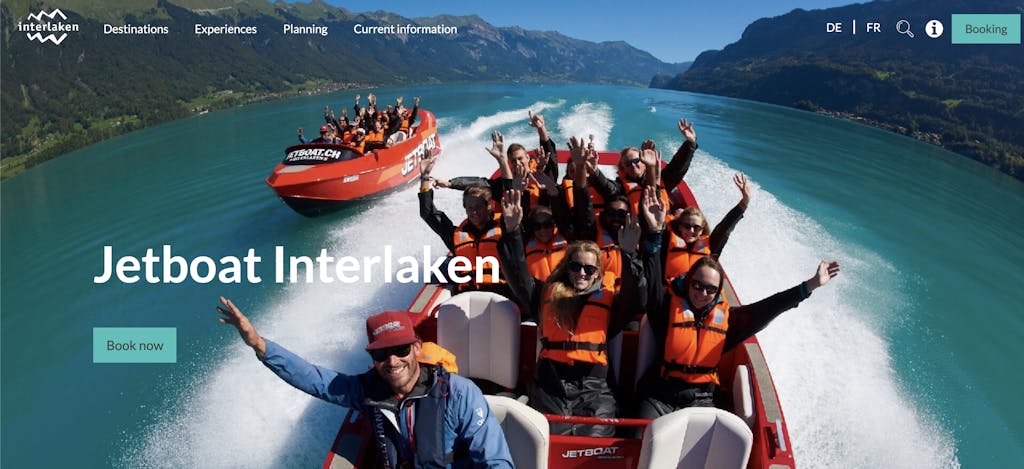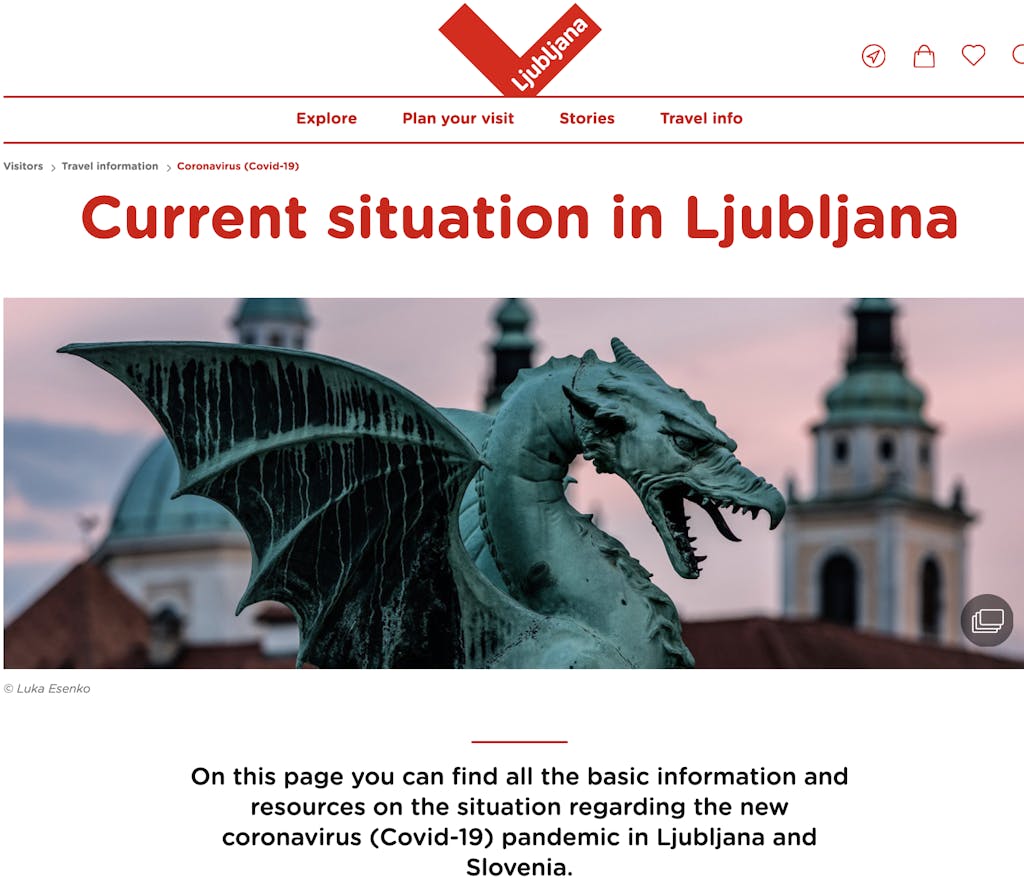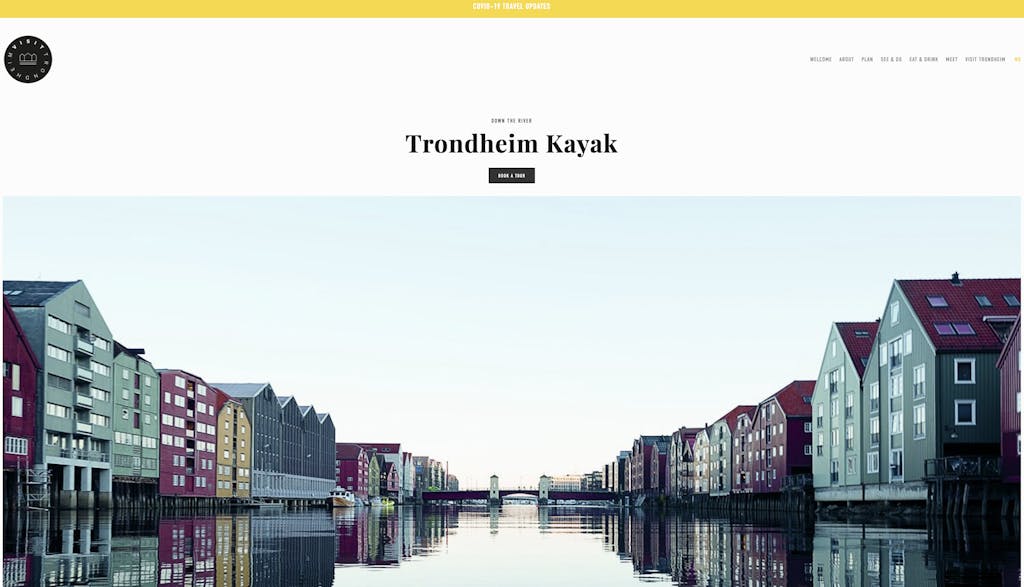- 11 minute read
- COVID-19 Resources
- Digital Marketing
- Local Strategies
Beginner,
Intermediate
Get a behind-the-scenes-look into FareHarbor's 2024 season

Destination Marketing Organizations (DMOs) or Convention and Visitors Bureaus (CVBs) play a key role in the long-term development of a destination by leading planning, management, and marketing efforts. They bring together governmental authorities, respected professionals, and other stakeholders such as local businesses, community members, and tour operators, to ensure the competitiveness, growth, and sustainability of the destination.
In 2020 perhaps more than ever before, building meaningful and strategic partnerships is crucial in helping tour operators to remain operational while also maintaining compliance with new local rules and regulations. Your local DMO can provide marketing and sales-generating opportunities, training courses, networking events, industry expertise, and the opportunity to weigh in on the industry – all of which benefits your business and provides you with a competitive edge.
This guide will answer all your questions about the different types of DMOs, what they do for their destinations and local businesses, and some considerations to keep in mind when working with your DMO.
DMOs are typically government-funded tourism marketing offices for cities, states, regions, and countries. The functions of DMOs may vary depending on the current and potential tourism needs, as well as on the involvement of local and national governments. The most common types of DMOs are:
 Central or National: These are the primary, high-level organizations responsible for operations and management of the tourism sector as a whole and for inter-sectoral coordination. They typically focus on attracting international visitors.
Central or National: These are the primary, high-level organizations responsible for operations and management of the tourism sector as a whole and for inter-sectoral coordination. They typically focus on attracting international visitors.
 Regional: These typically have a strong relationship with the national DMO and manage specific regions. Regional DMOs include local authorities, the private sector, professional organizations, universities, and others.
Regional: These typically have a strong relationship with the national DMO and manage specific regions. Regional DMOs include local authorities, the private sector, professional organizations, universities, and others.
 Local (county, city, town): These are in charge of a single destination or a thematic destination and are often smaller organizations, but they can offer a hyper-local perspective and advice.
Local (county, city, town): These are in charge of a single destination or a thematic destination and are often smaller organizations, but they can offer a hyper-local perspective and advice.
Keep in mind that DMOs across the globe operate differently based on their business model and their relationship to the government, but they all have the same goal to promote their destination, attract new visitors, and increase the economic growth for that destination in a sustainable way that benefits all stakeholders.

In a nutshell – it markets the destination! DMOs have many ways to promote a destination – common tactics include:

Partnering with your local DMO can offer you new opportunities to access potential customers that you might not otherwise have access to. They can help you grow your local reach by promoting your experiences on a wider scale thanks to the DMO’s visibility, and they can also help you reach other businesses or international travelers, which can boost your sales.

DMOs typically have a big-picture understanding of the tourism ecosystem in their destination. They can be a source of insights into international travel marketing, booking patterns in your area, and more. Working with a DMO can give you access to:
It’s invaluable to create relationships and partnerships with other businesses in your area. This allows you to build a strong network that leads to a thriving local ecosystem. It also makes it easier to stay informed about what’s going on in your destination, such as government initiatives and industry events. DMOs provide a platform to build this network and create a community. They serve as a reliable, trusted partner in the tour and activity space that you can turn to when you have questions or concerns.
It’s common for DMOs to advertise products and services on their websites by including links to local operators, or by having a marketplace where they resell experiences from local operators and take a small commission on the bookings. This offers tour and activity operators an additional avenue to sell their experiences.
Trade shows, destination events, or roadshows that showcase a variety of experiences at a destination are another way in which DMOs can provide additional exposure to local businesses.
Working with a DMO has many benefits, but it’s important to bear in mind that their goal is to serve as a central promotional hub that bolsters the destination as a whole rather than individual businesses. Don’t expect your business to be at the center of DMO promotions. Remember that your DMO has many members, all competing for attention. To get the most out of your membership, it’s important to be an active member and be vocal about the kinds of services that you need. Feedback is important to DMOs, so don’t be afraid to give it.
The main goal of destination marketing is to boost the number of visitors to that specific region, and DMOs, operators, and travel intermediaries all work together to achieve this goal. The single biggest competitor for a destination is another destination in close proximity or one that offers comparable experiences. By seeing your local DMO and fellow operators as allies, you can work together to outperform the competition.
 Pro tip: Some DMOs have restrictive ways in which they can promote or sell partners. Put us in contact with any DMOs you are speaking with and we can help offer solutions!
Pro tip: Some DMOs have restrictive ways in which they can promote or sell partners. Put us in contact with any DMOs you are speaking with and we can help offer solutions!
Now that you know more about DMOs and how they can help your business, we recommend you get in touch with your local organization and learn more about the opportunities they can offer you. Remember that collaboration is key in our industry, and FareHarbor is always exploring new ways to help our clients grow and contribute to the industry as a whole. Learn more by reading our guide to marketing to your local community and our tour operator’s guide to digital marketing during the pandemic.